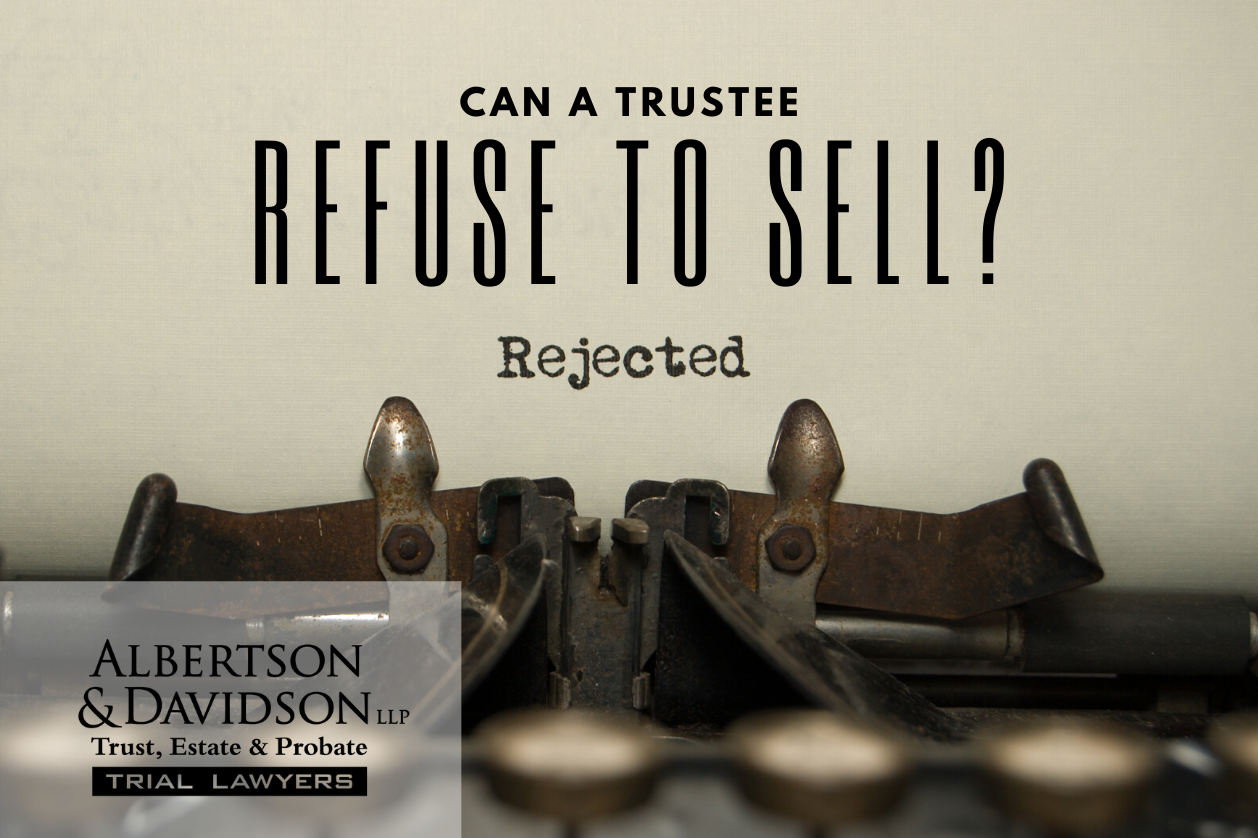
Can a Trustee refuse to sell a house owned by the Trust? Typically, the answer is no. But it depends on the circumstances of your Trust. Here is the most common scenario: You are a beneficiary of a Trust. There are two or more other beneficiaries. The Trust requires that all Trust assets be distribution “outright and free of Trust.” The house is a major asset in the Trust estate. The Trustee (who is also a Trust beneficiary) either wants to continue living in the home, or wants to rent the home and collect the rent for an indefinite period of time.
Refusing to Sell
You want to be cashed out but the Trustee refuses to buy you out of the home and also refuses to sell the home. Can the Trustee do this? No. If the Trust document requires an outright distribution of assets, then you are entitled to receive your share of the home outright. If the Trustee wants to keep the home, or some of the other beneficiaries want to keep the home, then they will need to buy out your interest in the home. If they refuse, then you and your lawyer can go to court and ask the court to order a sale of the home.
The problem that can arise with a buy out of your interest in the home is setting the correct value. Often the beneficiaries will fight over the value of the home. Obviously, those who want to keep the home prefer a lower valuation because it decreases the buy-out amount. Those wanting to be bought out prefer a higher valuation. So each side hires their own appraiser and they end up with two different valuations numbers. This is because real estate appraisals are rarely black and white. There is often some grey area where valuations can be moved a little higher or a little lower depending on the needs of the client.
Breaking the Stalemate
Again, if all else fails and you cannot agree on a buy-out valuation, then you can go to court and ask the judge to force a sale of the home. Selling the home may be the best way to set the value because it requires an independent buyer to agree to a sales price. A home is only worth what someone will pay for it, after all. So, the sale can break a stalemate between beneficiaries if they cannot come to an agreement between themselves.
